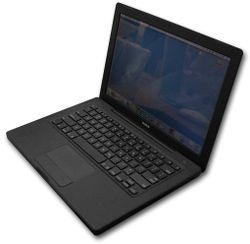|
|
| |
|
|
| |
|
|
|
|
| |
 |
| An example of a
laptop. |
Computer Science
Computer science is the study of how to manipulate,
manage, transform and encode information.
There are many different areas in computer science. Some
of the areas consider problems in an abstract way. Some
areas need special machines, called computers.
A person who works with computers will often need
mathematics, science, and logic in order to make and use
computers.
Common tasks for a computer
scientist
Asking questions
This is so that they can find new and easier ways to do
things, and the way to approach problems with this
information. |
|
Asking the right question
Computers can do some things easily (for example: simple
math, or sorting out a list of names from A-to-Z). But
computers cannot answer questions when there is not
enough information, or when there is no real answer.
Also, computers may take too much time to finish long
tasks. For example, it may take too long to find the
shortest way through all of the towns in the USA - so
instead a computer will try to make a close guess. A
computer will answer these simpler questions much
faster. |
|
Answering the question
Algorithms are complicated steps of instructions describing
how to complete a task, such as solving a problem. Think
about playing cards, for example. A computer scientist wants
to sort the cards. First he wants to sort them out by color.
Then he wants to order them by number (2, 3, 4, 5, 6, 7, 8,
9, 10, Jack, Queen, King, and Ace). The computer scientist
may see different ways to sort the playing cards. He must
now think about how he will do it. When he decides, he has
created an algorithm. After making the algorithm, the
scientist needs to test whether the algorithm always does
what it should. Then, the scientist can see how well his
program sorts the cards. |
|
|
|
|
|
|
|
|
|
|
|
|
|
|
|
|
|
|
Search Fun Easy English |
|
|
|
|
|
|
|
|
|
|
|
|
|
|
|
About
Contact
Copyright
Resources
Site Map |